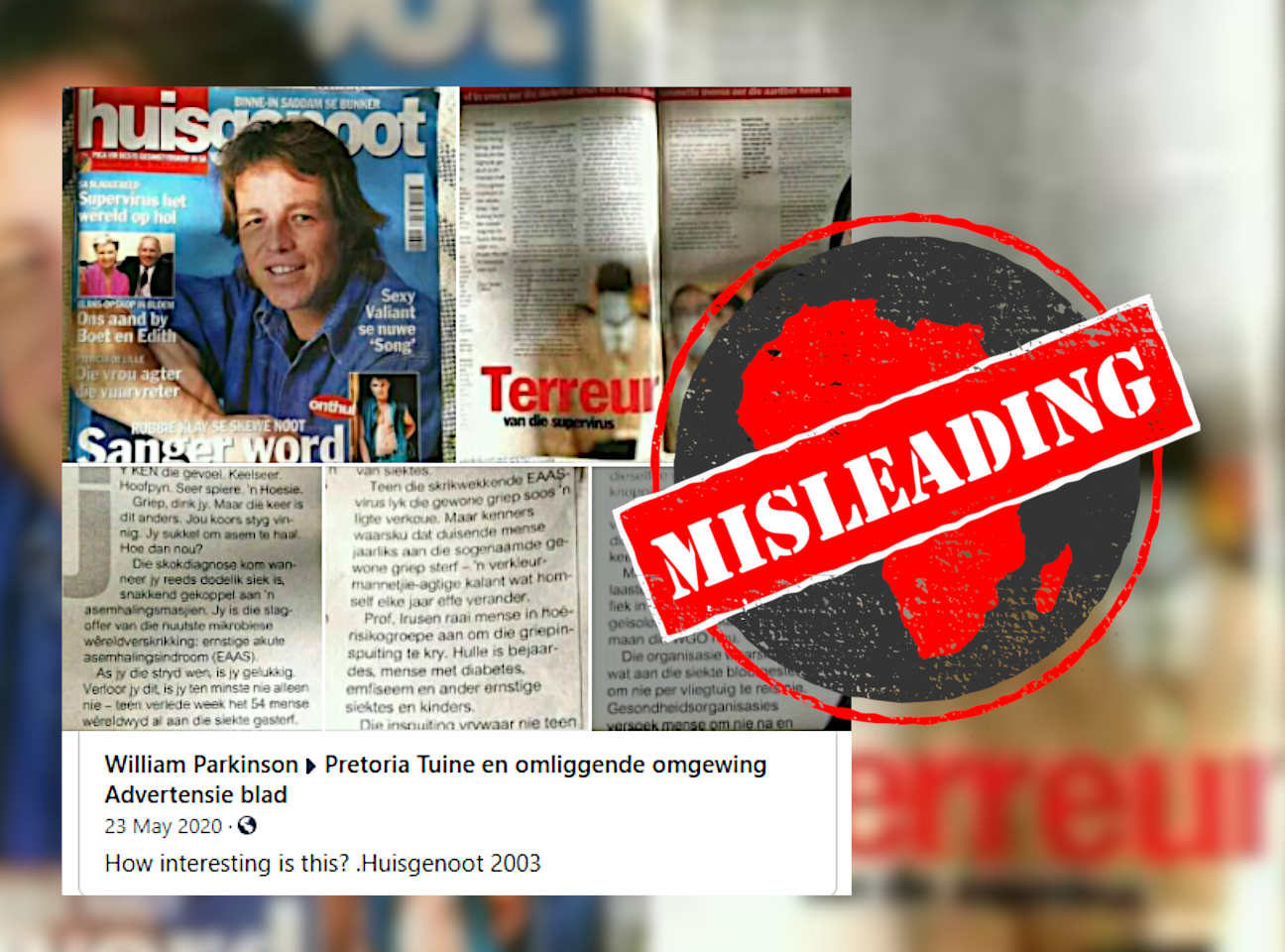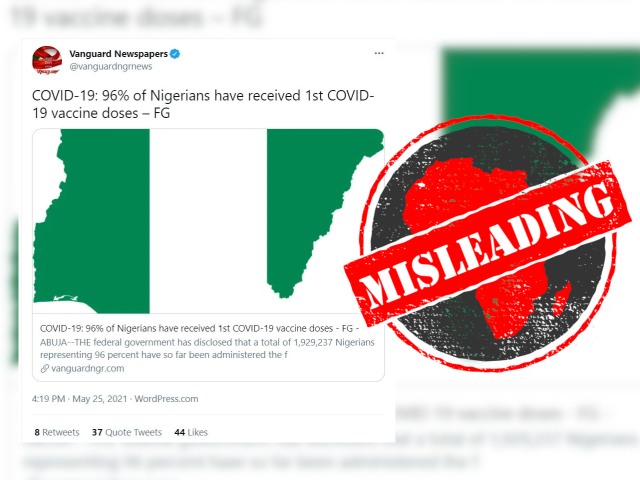The Covid-19 pandemic caused by a “novel” coronavirus discovered in China in December 2019 has locked down countries across the world and killed more than 1.9 million people as of 11 January 2021.
But did popular South African Afrikaans-language magazine Huisgenoot write about a “supervirus” discovered in China as far back as 2003?
In early 2021, several Facebook posts have shared copies of pages from what appears to be a 2003 issue of Huisgenoot that discuss “’n agressiewe variant van die corona-virus” – “an aggressive variant of the coronavirus”.
Several posters speculated that the magazine had already reported on “this” coronavirus – “Huisgenoot alreeds berig oor hierdie corona virus” – and suggest that the Covid-19 pandemic is the “exact same thing all over again”.
We found Facebook posts about the older Huisgenoot article from as early as May 2020, but since newer posts on the same topic were published in the first week of January 2021, these earlier posts have also seen hundreds of thousands of new views.
Did Huisgenoot report on “this coronavirus” in 2003? And is Covid-19 the “same thing all over again?”
A tale of two viruses
It is difficult to discern the date on the magazine cover in many of the images shared, but these close-up photos confirm the article was in the 10 April 2003 issue.
The article is about “ernstige akute asemhalingsindroom (EAAS)”, Afrikaans for “severe acute respiratory syndrome”, or Sars.
Sars is caused by a coronavirus, a family of viruses named for the “crown” or shape of the spikes on their outer surface. Corona is Latin for crown. The virus that causes Sars is named “Sars-associated coronavirus” or “Sars-CoV”.
It was first discovered in February 2003 when a series of Sars infections were reported in China. The disease spread to several other countries in an epidemic that was never declared a pandemic. Only 8,098 people were diagnosed with Sars, and 774 died.
Covid-19 is caused by a different but closely related coronavirus, named “Sars-CoV-2”. This virus was first reported in China in December 2019, and later detected in other countries.
Covid-19 was declared a pandemic by the World Health Organization on 12 March 2020, at which point 125,260 cases and 4,613 deaths had been identified worldwide.
The bigger picture
Because they are so closely related and share such similar names and origin, it can be easy to confuse the virus that causes Sars with the virus that causes Covid-19. But these simple mistakes have played into a broader trend of misinformation during the Covid-19 pandemic.
False claims that the pandemic was predicted by a number of historical figures, for example, have informed conspiracy theories that the disease was artificially created.
Huisgenoot did report on the 2003 Sars outbreak caused by a coronavirus. But this was not the coronavirus that causes Covid-19, a far deadlier disease. The 2003 article was not prophetic.
Republish our content for free
For publishers: what to do if your post is rated false
A fact-checker has rated your Facebook or Instagram post as “false”, “altered”, “partly false” or “missing context”. This could have serious consequences. What do you do?
Click on our guide for the steps you should follow.
Publishers guideAfrica Check teams up with Facebook
Africa Check is a partner in Meta's third-party fact-checking programme to help stop the spread of false information on social media.
The content we rate as “false” will be downgraded on Facebook and Instagram. This means fewer people will see it.
You can also help identify false information on Facebook. This guide explains how.




Add new comment